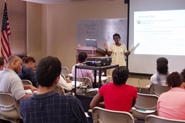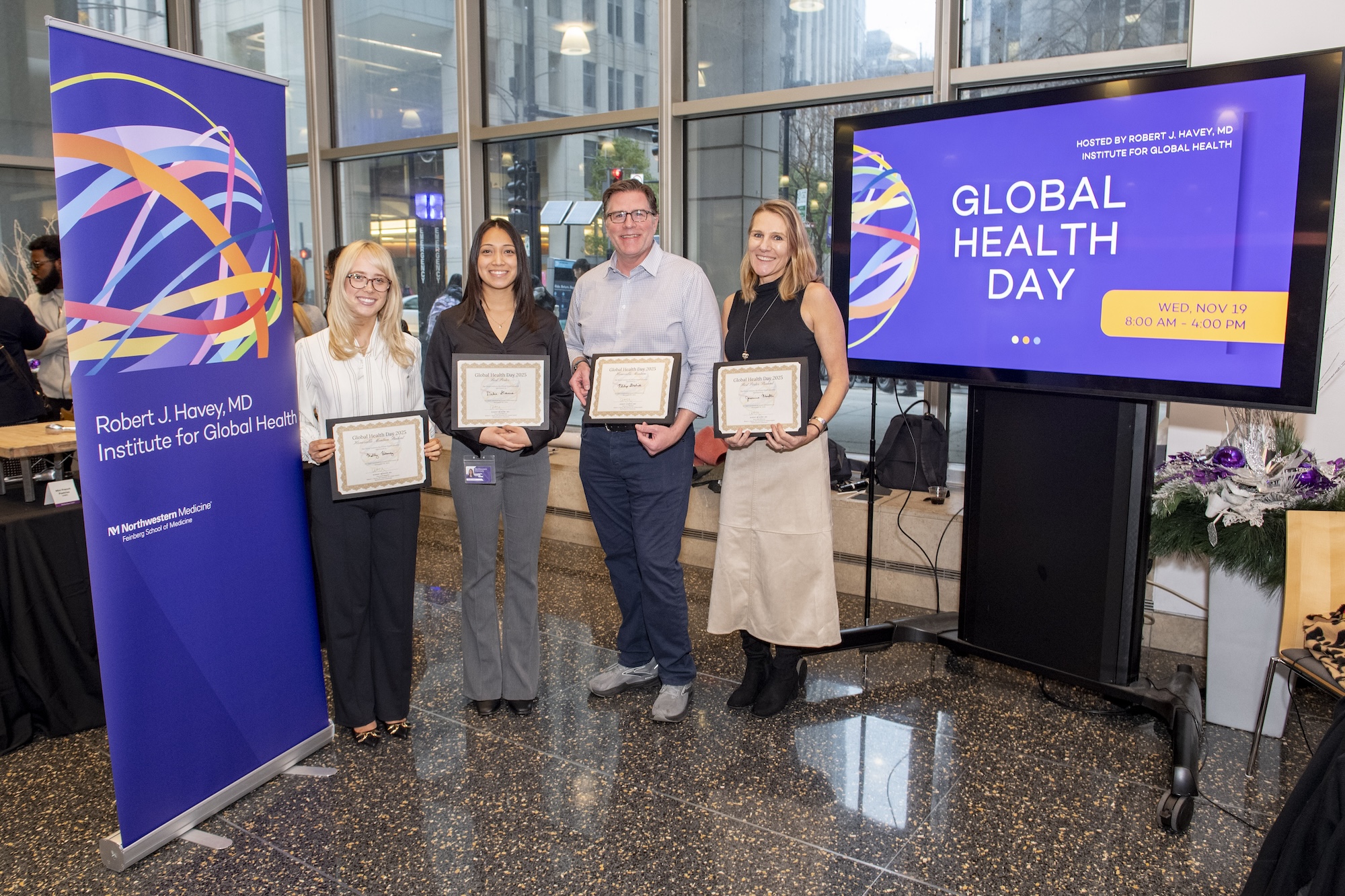Helping Minority Students Achieve Goals
 The Feinberg School of Medicine is serving as home base for more than 40 students taking part in the Minority Medical Education Program (MMEP) that runs from June 16 to July 25. Funded by the Robert Wood Johnson Foundation and Association of American Medical Colleges, the program aims to help promising, highly motivated underrepresented minority students gain admission to medical school.
The Feinberg School of Medicine is serving as home base for more than 40 students taking part in the Minority Medical Education Program (MMEP) that runs from June 16 to July 25. Funded by the Robert Wood Johnson Foundation and Association of American Medical Colleges, the program aims to help promising, highly motivated underrepresented minority students gain admission to medical school.
The University of Chicago and Rush University are partners with the Feinberg School in the six-week-long Chicago Summer Science Enrichment Program, but participants are housed at Lake Shore Center on Northwestern University’s Chicago campus where they also have most of their lectures. Says Nicole M. Woods, director of minority and cultural affairs at the Feinberg School, “Our office supports the students, whether it’s something as simple as touching base on how the day is going or helping them when problems or concerns arise.” Northwestern’s medical school has been involved with the program for more than 10 years, Woods said, but this is the first year the new Office of Minority and Cultural Affairs has participated.
The MMEP has 11 sites across the country, with Chicago being the only consortium. “I’ve never been to Chicago before, but now I’m considering all the area schools,” said Candice Evans, a junior at Florida A & M University. The free program has been as useful as Evans hoped it would be. “Everyday, we’re getting a feel for what life is like as a medical student, what the everyday demands are,” she says. “It’s a great opportunity, and you definitely get a lot out of it.”
The students studied three different organ systems and had clinical experiences at all three schools. For Kristen Solomon, a junior at Eastern Nazarene College in Quincy, Massachusetts, being able to observe a surgery impressed her. “I never thought I’d be able to see something like that until I was actually in medical school,” Solomon says. “Even though it’s only six weeks, I am learning so much.”
Nationally, more than 60 percent of MMEP students who apply to medical school are admitted. “Each school has done a great job exposing us to their faculty and students, their curriculum, and their idea of diversity,” Solomon says. “That’s really encouraged me to apply and keep going at it.”






